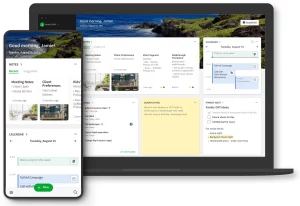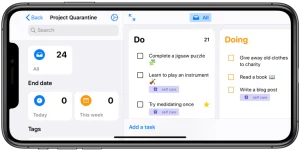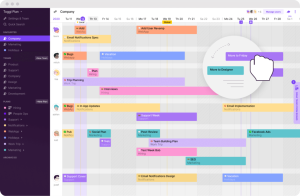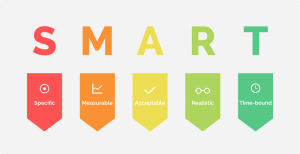Introduction In the world of productivity, time management often takes center stage. But did you know that the principles of effective time management extend beyond mere productivity? They can play a crucial role in positively impacting your wellness goals. In this fast-paced era, where balancing work, life, and self-care is a constant challenge, mastering time
Introduction
In the world of productivity, time management often takes center stage. But did you know that the principles of effective time management extend beyond mere productivity? They can play a crucial role in positively impacting your wellness goals. In this fast-paced era, where balancing work, life, and self-care is a constant challenge, mastering time management could be the key to a more balanced and fulfilling lifestyle.
Time Management and Your Well-Being
The connection between time management and overall well-being goes beyond surface level. Utilizing efficient time management skills can do more than boost productivity; it can lead to a heightened sense of self-efficacy and even improve self-esteem. Contrary to popular belief, the effects of effective time management often ripple into one’s well-being more significantly than they do into sheer productivity.
Gaining a sense of control over your schedule and making room for activities that align with your purpose can foster a positive mindset and enhanced well-being. But how can you employ time management skills to support your wellness journey? Here are some actionable strategies to help you integrate time management into your wellness routine.
Identify Your Own Time Management Needs
There’s no universal approach to crafting a schedule that suits everyone. The journey toward effective time management begins with understanding your individual needs. Take the time to recognize the periods of the day when your energy levels peak. Use this awareness to allocate demanding tasks during your peak hours, optimizing productivity.

Image by:https://www.shopify.com/
If you’re not a morning person, shift your workout times to evenings or afternoons when you’re more alert. Furthermore, embrace the idea that time management needs differ from person to person. You might explore specialized time-planning tools tailored to conditions like executive function disorder. Experiment with diverse time management techniques until you uncover what resonates with your unique rhythm.
Find (and Use) a Planner You Love
Simplicity can be transformational. Keeping track of your to-do lists and wellness goals in a single space can work wonders in improving your time management skills. Whether you opt for a physical journal, a digital weekly planner, or an app like Structured, choosing a tool that resonates with you can make time management more accessible and enjoyable.

Image by;https://ioshacker.com/
Structured, for instance, offers a simple schedule for daily tasks, including workouts, meals, and meditation. It provides a streamlined approach to keeping your schedule organized and accessible, fostering effective time management.
Guard Your Time
A well-crafted time adjustment plan deserves protection against distractions. Bid farewell to habits and activities that no longer serve your well-being. This could mean curbing late-night phone scrolling to safeguard your sleep schedule or setting boundaries at work to maintain focus and prevent burnout.
Healthy boundaries not only improve time adjustment during work hours but also create space for self-care and relaxation. Moreover, by respecting your own time and limiting unnecessary interruptions, you elevate your overall efficiency and reduce stress.

Image by:https://9to5mac.com/
Automate and Delegate Wherever Possible
While time management involves allocating time to tasks, automation and delegation can free up more of that precious resource. Simplify your routine by automating repetitive tasks and utilizing services like grocery delivery or meal planning apps. Such practices optimize your daily schedule, granting you additional time for well-being activities or relaxation.

Image by:https://toggl.com/
Schedule Time for Your Own Wellness and Relaxation
Just as you prioritize work tasks, designate specific time blocks for self-care activities. Incorporate workouts, meditation, yoga, or any practice that contributes to your well-being. By dedicating time in your schedule, you increase the likelihood of following through with your wellness goals. Whether it’s a serene meditation session or a movie night, creating designated blocks for self-care enhances your sense of fulfillment.

Image by:https://support.apple.com/
Avoid Multitasking
The allure of multitasking often disguises its inefficiency. Research by the American Psychological Association reveals that multitasking can extend task completion time. Moreover, internet multitasking is linked to heightened stress levels, according to studies in Media Psychology. Embrace single-tasking instead—a practice of focusing on one activity at a time. By giving undivided attention to tasks, you enhance productivity and reduce unnecessary stress.
Meet Your Self-Care and Wellness Goals With Time Management Tips

Image by;https://www.yorku.ca/
Time management isn’t merely about maximizing productivity; it’s a path toward a balanced and stress-free life. By integrating these time management strategies into your routine, you’ll create a more harmonious existence. Through personalized scheduling, effective planning tools, guarding your time, and practicing focused work, you pave the way for improved well-being. Your journey to wellness becomes smoother, and the path to self-care clearer. Start embracing these time management principles today for a healthier, happier you.

















Leave a Comment
Your email address will not be published. Required fields are marked with *